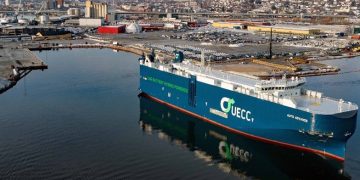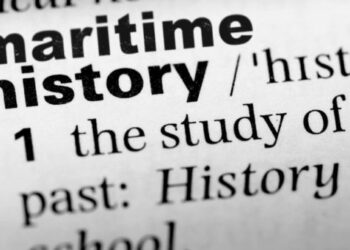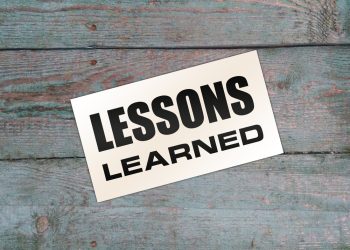CHIRP Maritime draws lessons learned from an incident where poor communication, incomplete securing of deck areas, and a failure to fully implement heavy weather procedures led to deaths of two seafarers.
Initial report
The weather forecast indicated an approaching low-pressure system with strong winds and increased swell activity. At 0500 the pilot disembarked, and the master instructed the crew to secure all lines and deck equipment. The aft station was reported secure, but the crew left the forward station unfinished, planning to return later. The master handed over the con to the third officer and left the bridge. During the passage, heavy swell caused the vessel to slam against waves, waking the master, who ordered a speed reduction and course adjustment. By midday, the second officer took over the watch, with increasing wind and three-meter waves.
After lunch, the chief officer went on deck to check that the containers were still secure. Around the same time, the bosun and deck crew returned to complete securing the forward station. A short while later, a large wave breached the forecastle, washing crew members off their feet. The chief officer found four injured crew members and raised the alarm. The master altered course towards the nearest port, and the injured crew were transferred to the ship’s hospital. A medevac request was considered, but it was not possible, and the vessel proceeded to port, where paramedics boarded that evening. Two crew members later died due to their injuries; another required emergency surgery, and one was treated onboard.
The pre-departure safety meeting addressed weather conditions and crew responsibilities. Nevertheless, access to the deck remained unrestricted. The company’s heavy weather checklist was not utilised, as it lacked clearly defined thresholds for heavy weather.
CHIRP comment
Several key opportunities to prevent this incident were missed: crew members at the forward station should have remained until the area was secure; the master should not have proceeded to sea until they were satisfied the vessel was secure; and the handover to the third officer should have included the status of the forward station.
As the weather deteriorated, the master and OOW should have dynamically assessed whether the upper deck remained safe for personnel. The lack of guidance regarding upper deck operations in the company’s heavy-weather checklist was also an indirect causal factor.
The chief officer’s swift response to the alarm and the master’s decision to alter course toward the nearest port were appropriate actions. However, being unable to carry out a medivac underscores seafarers’ ongoing challenges in accessing timely medical support. This highlights the need for improved coordination between vessels and shore-based emergency services, especially in remote areas.
Despite the pre-departure safety meeting addressing the weather conditions, access to the deck remained unrestricted. This raises concerns about how effectively safety briefings are implemented in practice. Furthermore, the company’s deck access code procedures and heavy weather checklist lacked clear thresholds to guide the crew’s decision-making, leaving room for ambiguity in assessing the risks of worsening sea conditions. This incident is a powerful reminder that risk checks, clear communication, and adherence to heavy-weather procedures must never be overlooked. Lives were lost—needlessly. If this report encourages even one crew member to stop, think, and act more safely, then something meaningful can emerge from this tragedy. Please don’t wait until it’s too late. Choose safety—every time.
Key takeaways
Seafarers – “Your actions shape the safety culture onboard.”
Local habits that ignore best practices put everyone at risk. Speak up, challenge unsafe norms, and work together—especially in heavy weather. If something feels wrong, it probably is. You are the first and strongest line of defence.
Ship managers – “What you walk past, you accept.”
A culture of overconfidence or casual preparation starts ashore. Managers must set clear expectations for securing the ship for sea and adverse weather and ensure crews are trained and supported to follow them. Audits should not just check boxes—they should test real-world readiness.
Regulators – “Standards mean nothing if they are not applied.”
There is a vital difference between compliance and safety. A vessel can tick all the regulatory boxes and still be unsafe. Regulators must recognise when local practices undermine global standards regarding paperwork and real-world safety outcomes. Intervention should go beyond audits, including proactive oversight, education, and follow-up. The goal is not just compliance—it is genuine safety. That cannot be left to chance.































































